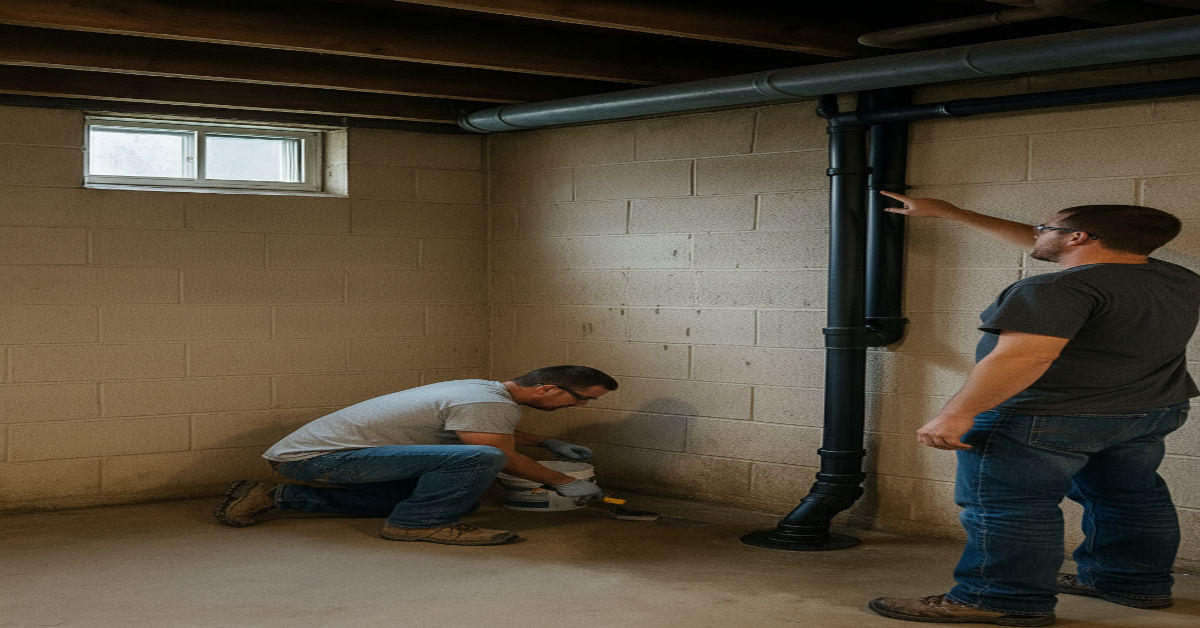Basement waterproofing is an essential step in maintaining the structural integrity and comfort of your home. Basements are prone to water intrusion, which can lead to costly repairs, mold growth, and even health hazards. Understanding how to properly waterproof your basement can save you money, protect your belongings, and ensure a safe living environment from water damage.
This article covers everything you need to know about basement waterproofing—from why it’s necessary to the methods available, common signs of water damage, and tips for choosing the right solution for your home.
Why Basement Waterproofing Is Important
Basements are inherently vulnerable to moisture due to their location below ground level. Water can seep through cracks in the foundation walls, floors, or around windows and doors. Without proper waterproofing, this moisture can cause a host of problems:
- Structural Damage: Persistent water infiltration weakens foundation walls and floors, potentially leading to cracks or even collapse.
- Mold and Mildew: Moist environments encourage mold growth, which can cause health issues like allergies, asthma, and respiratory infections.
- Damage to Personal Property: Water can ruin furniture, electronics, flooring, and other valuables stored in the basement.
- Unpleasant Odors: Damp basements often develop musty odors that permeate the home.
- Reduced Home Value: A wet or damaged basement lowers the market value and can deter buyers.
Proper basement waterproofing protects your home and investment by preventing these problems before they start.
Signs You May Need Basement Waterproofing
Knowing the early warning signs can help you act before minor issues become major repairs:
- Visible Water or Dampness: Puddles, wet spots, or water stains on walls or floors.
- Mold or Mildew Growth: Black, green, or white spots on walls, floors, or stored items.
- Musty Smell: Persistent damp odor indicating moisture presence.
- Efflorescence: White, powdery deposits on walls caused by mineral deposits left by evaporating water.
- Cracks in Foundation or Walls: Water can enter through these openings.
- Peeling Paint or Wallpaper: Moisture causes finishes to bubble or peel.
- Rusty or Corroded Metal Fixtures: Indicates high humidity or water contact.
- High Humidity Levels: Condensation on windows or metal pipes.
If you notice any of these signs, it’s time to evaluate basement waterproofing options.
Common Basement Waterproofing Methods
There are several effective basement waterproofing techniques, which can be combined for best results:
1. Exterior Waterproofing
This method involves applying waterproof coatings or membranes to the outside of foundation walls, often combined with excavation to access the foundation. Drainage systems such as French drains or weeping tiles may be installed to divert water away.
Pros:
- Prevents water from entering at the source
- Long-lasting protection
- Addresses hydrostatic pressure buildup
Cons:
- Can be expensive and labor-intensive
- Requires excavation around the home
2. Interior Waterproofing
Interior waterproofing typically involves sealing cracks and joints with waterproof sealants or epoxy injections. Interior drainage systems with sump pumps can also be installed to collect and remove water that enters.
Pros:
- Less disruptive and more affordable than exterior methods
- Improves basement usability
Cons:
- Doesn’t stop water from entering; manages it after infiltration
- May require ongoing maintenance of sump pumps
3. Basement Crack Repair
Cracks in the foundation are common water entry points. Professional crack repair using epoxy or polyurethane injections creates a watertight seal to prevent leaks.
4. Vapor Barriers and Insulation
Installing vapor barriers on walls and floors prevents moisture from penetrating into living spaces. Proper insulation also helps control humidity and condensation.
How to Choose the Right Basement Waterproofing Solution
Choosing the best waterproofing method depends on several factors:
- Severity of Water Problems: Persistent flooding versus occasional dampness
- Foundation Type and Condition: Concrete, block, or stone foundations behave differently
- Soil and Drainage Around the Home: Poor drainage increases water pressure
- Budget: Exterior waterproofing is costlier but more comprehensive; interior solutions are less expensive but sometimes less permanent
- Future Plans: Finishing the basement as living space may require more extensive waterproofing
A professional assessment is highly recommended to determine the best approach.
DIY vs. Professional Basement Waterproofing
While minor issues like sealing small cracks or applying waterproof paint can be DIY projects, significant waterproofing is best handled by professionals. They have the expertise, equipment, and materials to provide lasting solutions and prevent damage to your home.
Maintenance Tips for a Dry Basement
- Keep gutters and downspouts clear to direct water away from the foundation.
- Ensure the ground slopes away from your home.
- Regularly inspect for cracks or signs of moisture.
- Test sump pumps periodically to ensure they function properly.
- Use a dehumidifier to control basement humidity.
- Avoid planting water-intensive landscaping near the foundation.
The Cost of Basement Waterproofing
Costs vary widely based on the chosen method, the size of the basement, and the extent of the problem. Exterior waterproofing ranges from several thousand to tens of thousands of dollars, while interior methods and repairs typically cost less.
Conclusion
Basement waterproofing is an investment in your home’s safety, comfort, and value. Addressing water intrusion proactively prevents damage, health issues, and costly repairs. Whether you choose exterior waterproofing, interior solutions, or a combination, understanding your options ensures the best protection for your basement.
If you suspect moisture issues or want to safeguard your home, consider consulting a professional basement waterproofing specialist today.







